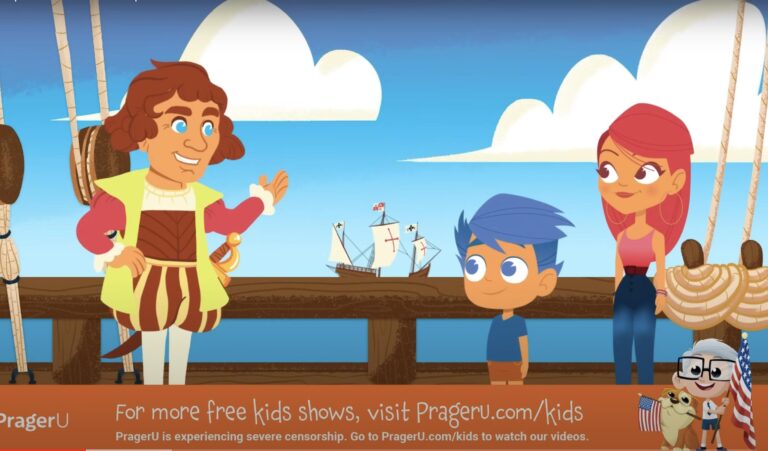In recent years, PragerU, a conservative media organization known for its right-wing commentary, has intensified efforts to influence public education across the United States. According to a new report by Rolling Stone, the group’s calculated strategy to embed its ideological content within school curricula and educator networks is making significant headway. This development raises critical questions about the growing role of partisan messaging in classrooms traditionally regarded as neutral spaces for learning. The implications of PragerU’s playbook—often framed as promoting free speech and diverse perspectives—are becoming increasingly visible as conservative ideas find footholds in public education systems nationwide.
PragerU’s Strategy to Shape Curriculum and Influence Educators
PragerU employs a multifaceted approach to embed its conservative ideology within public education, targeting both curriculum design and educator influence. Central to their strategy is the dissemination of concise, persuasive video content that simplifies complex historical and political topics into digestible narratives aligned with right-wing viewpoints. This content is then strategically circulated through teacher-friendly guides, lesson plans, and interactive webinars aimed at fostering a community of educators receptive to PragerU’s messaging. By emphasizing themes such as free-market capitalism, limited government, and traditional values, PragerU ensures their materials align with parent concerns and school district priorities, making adoption more seamless.
Crucially, PragerU does not stop at classroom resources; they actively work to cultivate relationships with school administrators and board members who can champion their content at the district level. The organization leverages a network of likeminded activists to advocate for policy changes that prioritize their curricular preferences. The table below outlines key tactics PragerU uses to extend its influence in public education:
| Strategy | Description | Target Audience |
|---|---|---|
| Video Lessons | Short, engaging clips simplifying political and historical themes | Teachers and students |
| Curriculum Guides | Ready-to-use lesson plans and discussion questions | Educators |
| Advocacy Training | Workshops empowering teachers to promote content | Teachers, school leaders |
| Parent Outreach | Informational campaigns designed to mobilize parental support | Parents and community members |
By combining media savvy with grassroots activism, PragerU is reshaping educational landscapes, promoting a version of history and civics that aligns neatly with its ideological goals, while positioning educators as both adopters and proponents of this conservative curriculum shift.
The Impact of Conservative Messaging on Student Perspectives
Recent studies have revealed a significant shift in student attitudes, largely attributed to the pervasive influence of conservative messaging in classrooms. By strategically introducing curated content that emphasizes themes like personal responsibility, free-market principles, and skepticism towards progressive ideologies, these messages shape young minds well before they reach college. Conservative organizations often tap into educational platforms under the guise of promoting “balanced viewpoints,” yet the cumulative effect nudges students towards a particular ideological stance.
Key methods of influence include:
- Distribution of multimedia materials that frame historical and economic narratives through a right-wing lens.
- Organizing speaker events and workshops that prioritize conservative perspectives in academic settings.
- Leveraging social media campaigns targeted directly at school-age demographics to reinforce ideological messaging.
| Influence Vector | Outcome on Student Views |
|---|---|
| Curriculum Supplements | Increased acceptance of conservative economic policies |
| Guest Lectures | Heightened skepticism of climate science |
| Online Content | Greater distrust in mainstream media narratives |
Analyzing the Role of Social Media in Expanding PragerU’s Reach
Recommendations for Safeguarding Public Education from Ideological Bias
To ensure public education remains a space for balanced knowledge rather than becoming a battleground for ideological agendas, it is vital to implement transparent oversight mechanisms. School boards and state education departments should adopt clear guidelines that prioritize curricular integrity and diverse perspectives. Mandatory audits of teaching materials and external review panels comprising unbiased educators and experts can help detect and counteract covert partisan influences. Moreover, training programs for teachers emphasizing critical thinking and media literacy will empower educators to present multiple viewpoints fairly and recognize biases within themselves and the materials they use.
Community engagement must also be strengthened as a frontline defense against ideological infiltration. Parents, students, and local stakeholders should be given accessible platforms to voice concerns and participate in curriculum development. Below is a concise framework illustrating actionable steps schools and communities can take:
| Action | Purpose | Impact |
|---|---|---|
| Curriculum Transparency | Public access to teaching materials | Increases accountability |
| Teacher Diversity Training | Promote inclusive pedagogy | Reduces unconscious bias |
| Community Forums | Encourage dialogue and feedback | Fosters trust and collaboration |
| Independent Review Boards | Evaluate curricular content | Ensures balanced viewpoints |
Closing Remarks
As the influence of PragerU’s right-wing strategies continues to permeate public education, the debate over ideological balance and academic integrity grows increasingly urgent. With evidence mounting that these efforts have gained significant traction, educators, policymakers, and communities must grapple with the implications for critical thinking and balanced discourse in schools. The unfolding situation underscores a pivotal moment in the ongoing battle over the direction of American education—one that will likely shape the intellectual landscape for years to come.










PragerU’s aggressive use of social media platforms has been central to amplifying its ideological messaging, tapping into algorithms designed to prioritize engagement and virality. Through short, visually appealing videos paired with provocative soundbites, they make complex political arguments digestible and shareable, aligning perfectly with the consumption habits of younger, digitally-native audiences. Their strategic partnerships with influencers and targeted advertising on platforms like YouTube, Facebook, and Instagram have created a feedback loop, pushing their content into echo chambers where it spreads with little opposition.
Key social media tactics include:
This careful orchestration leverages social media’s fast pace to normalize conservative viewpoints within younger generations, effectively normalizing PragerU’s narratives within digital education spaces. As their reach continues to grow, so does their influence over public opinion, prompting heated debate about the role of social media platforms in shaping educational content and political discourse.